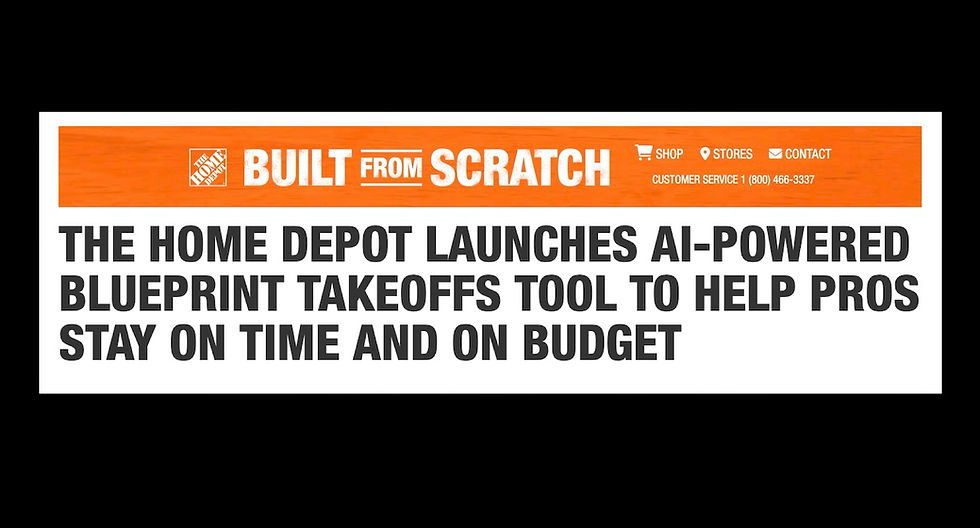How Will a Biden Administration Affect Dealers the Most? Our Advice: Watch the Regulators
- Craig Webb

- Nov 14, 2020
- 3 min read
Updated: Nov 15, 2020

By Craig Webb
Presidential administrations are like icebergs: So much attention is focused on what's in plain sight that it's easy to forget the bulk of what happens goes unseen. It's happening again now, with stories forecasting what to expect during a Joe Biden presidency. Most predictions focus on taxation tussles with Congress, evolving plans to fight Covid, stimulus programs to boost the economy, and budding conflicts with a conservative Supreme Court. But we suspect construction supply will feel the most likely impact somewhere else: at regulatory agencies.
There are several reasons why. First, there's no Mitch McConnell to slow you down like he can with budgets and tax bills. Second, Biden's constituents want an activist government. And third, there are the precedents set by the Obama-Biden administration.
Pre-Trump, the Labor Department's Wage and Hour Division cracked down on perceived abuses of independent contractors. Meanwhile, OSHA sought to make examples of companies that violated safety rules (or reached settlements without admitting guilt) by churning out news releases announcing penalties imposed on contractors. And the 2015 rule co-written by the Environmental Protection Agency (EPA) and the U.S. Army Corps of Engineers drove builders crazy with its definition of what constituted federally protected waters.
Departments that made headlines when Biden was vice president eventually were gutted and largely silenced during the Trump administration. Don't expect OSHA, EPA, and other departments to be so quiet come January.
These and other agencies' reassertion of authority will be aided by efforts to keep workers safe from coronavirus. "Biden could take action immediately at OSHA by ramping up inspections, filling vacancies and creating a safety standard that workplaces would be required to follow during the pandemic,"The Washington Post reported Nov. 13.
Union representatives, former Labor Department officials, and others already have drawn up recommendations to "make companies adhere to a stricter set of guidelines to make workplaces more safe," the newspaper added. "Chief among these measures would be the creation of an 'emergency temporary standard' for the coronavirus, a set of rules that workplaces would have to adhere to on such things as social distancing, hand-washing breaks, communication during outbreaks and ventilation. Failure to adhere to these standards during inspections could result in penalties from OSHA."
Meatpackers could be among the first companies to feel OSHA's sting. Liberals cast scorn on the Trump administration for imposing a mere $15,600 fine on JBS after 290 of its workers tested positive for Covid and six people died. Smithfield got a similar slap on the wrist relative to its annual revenues when it was fined $13,500 after nearly 1,300 workers at one of its plants testified positive and four employees died.
Expect more publicity about OSHA enforcement actions as it issues more news about smaller penalties. According to the National Employment Law Project, the number of press releases issued by OSHA dropped from 470 in 2016 to 158 in 2018. When Biden was vice president, OSHA believed lots of news releases helped persuade other companies to stay in line.
As for independent contractors, after the federal Labor Department in 2017 withdrew the Wage and Hour Administrator’s Interpretation on classification of workers, it began work on its own regulation. That proposal was sent out for comment in September. If it ultimately is approved before the Trump administration leaves office in late January, the Biden administration wouldn't have as easy a time overturning it as the Trump administration did with the interpretive letters issued under Obama., Rather, Biden's people would be required under the Administrative Procedures Act to undergo the same lengthy, complicated procedure to revise it that Trump's people are going through.
Meanwhile, prominent developments on the subcontractor front have been happening in California, where Assembly Bill 5 took effect Jan. 1. It declared that independent contractors were presumed to be employees unless the hiring business met stringent requirements set by the state Supreme Court in 2018.
Following months of protests, California Gov. Gavin Newsom signed legislation in September exempting certain categories of workers, such as music industry professionals and freelance writers. Then this month, California voters approved an initiative allowing so-called "gig economy" companies like Uber, Lyft, and DoorDash to continue treating drivers as independent contractors. Those actions in the Golden State are likely to influence OSHA should it decide to get more active with regard to treatment of independent subcontractors.






Comments